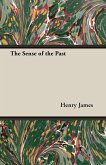Hinweis: Dieser Artikel kann nur an eine deutsche Lieferadresse ausgeliefert werden.
William Somerset Maugham was born in Paris, on January 25th, 1874. Orphaned by the age of ten, he moved to England to live with an uncle. He received his education in England and Germany, studying medicine and graduating as a physician.Eschewing his education, Maugham instead became a full-time writer. His first novel, Liza of Lambeth, was published in 1897, but he soon established his reputation as a successful playwright. In time he wrote 32 plays, and abandoned the theater scene by 1933.He wrote nineteen novels, of which Of Human Bondage (1915), The Moon and Sixpence (1919), The Painted Veil (1925), Cakes and Ale (1930), and The Razor's Edge (1944), are considered classics of early 20th century literature.Maugham was a restless and inquisitive soul, and his travels and his sympathies with the working class often formed the basis of characters and settings. Maugham also had a tendency to insert auto-biographical aspects into his work, most infamously in the Ashenden stories, based on his time with the British Secret Service during WWI.Throughout his life, Maugham faced many personal challenges. Romantic struggles and speculation of his sexual identity were only exacerbated publicly by his popularity amongst readers. He had an extended affair with Syrie Wellcome, who gave birth to his only child, May Elizabeth "Liza," in 1915, formalizing their relationship by marriage in 1917. Maugham's relationship with Frederick Gerald Haxton-his long-standing secretary/companion-& constant traveling, eventually caused a rift in the marriage, ending in divorce in 1929.He experienced great financial success with his works, many of which were adapted for radio, stage, film & TV; though the same could not be said for critical approval amongst the literary community, which was uneven at best. He died December 16th 1965, in Nice, France.In his later years, Maugham continued to beguile critics and fans alike-as author Pico Iyer writes, "The riddle he presents us with is how a stammering, conventional-seeming Edwardian, writing in civil service prose, could somehow become the spokesman of hippies, black magicians and stockbrokers throwing it all over for Tahiti. His books are measured explorations of extravagance."








